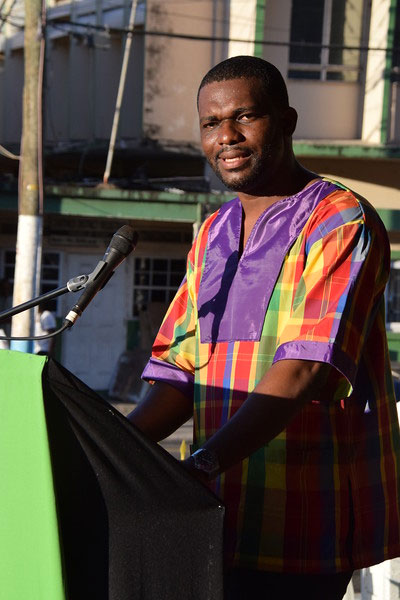
We the youth of St. Lucia, over the period 28th to 29th October 2016, within the framework of the Reparations Youth Forum, Reparations Baton Relay, Reparations Youth Rally and International Kwéyol Day celebrations in St. Lucia;
Recognising and expressing solidarity with the actions and activities of our ancestors to rid themselves of the shackles of slavery and native genocide under which they had suffered over so many years, their many struggles and triumphs and the sacrifice of their lives in an effort to ensure that we, their children, might inherit a society of freedom and democracy within which we would be able, in the words of Marcus ‘Mosiah’ Garvey, to become “masters of our own destiny”;
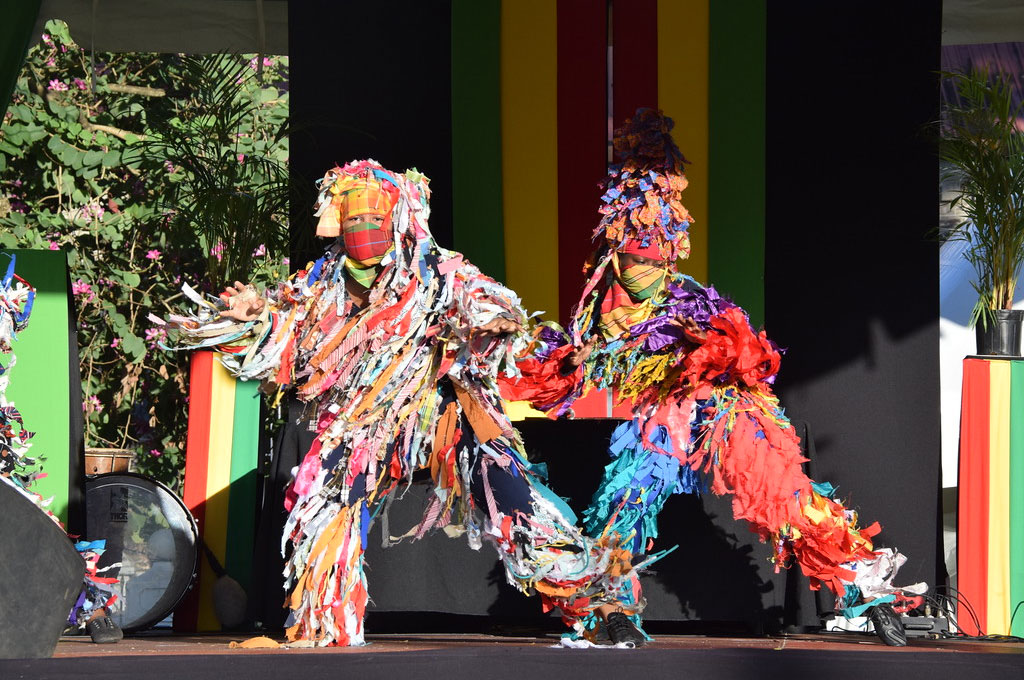
Acknowledging the resilience of the ancestors and inspired by their determination to rather “die on yonder gallows than live a life of slavery”, and as such, their regular heroic engagement and fierce struggles against the colonial systems and institutions through a litany of resistance, rebellions and wars over the period of our history; Being mindful of the importance of the Kwéyol language in St. Lucia as an expression of their resilience, determination and enduring self-worth; the Kwéyol itself being one of the innovative creations through which they would liberate themselves and create the basis of a new civilization for their children;
Being determined to entrench the Kwéyol language within the celebrations of our freedoms and the systems of communication and education for our people;
Affirming our commitment to and solidarity with the people of Haiti, the mother of Caribbean freedom, who continue in their modern history to suffer from the enduring legacies of slavery, oppression and injustice; and through the complicity of colonial governments, had to pay reparations to France as a consequence of their successful establishment of the first free Black Republic in this hemisphere; and now experiencing the erosion and inadequacy of their infrastructure that has led to great suffering through many natural disasters, not the least of which was the earthquake of January 2010 and the recent devastation heaped upon them by Hurricane Matthew in September 2016;
Acknowledging that slavery, both past and present, represent a crime against humanity based in its dehumanization and devaluation of the African persona to property and chattel;
Supporting in this regard the United Nation’s International Decade for People of African Descent being observed from January 2015 to December 2024, under the theme “Recognition, Justice and Development”;
Welcoming and supporting the decision taken by the Thirty-Fourth Meeting of CARICOM Heads of Government in Trinidad and Tobago in July 2013 to pursue Reparations through “development conversations” rather than a confrontational approach, by way of the establishment of the CARICOM Reparations Commission (CRC) whose mandate is to develop and implement a regional strategy based on research, legal action, public education, popular mobilization, consultations and diplomacy and having regard to the establishment of National Reparations Committees (NRCs) in member-states of CARICOM to carry out such activities in each member-state;
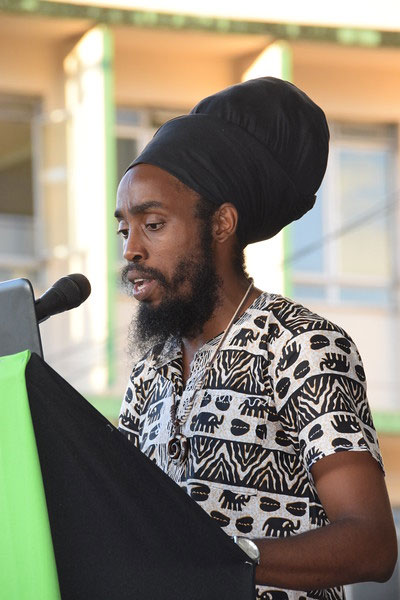
Welcoming the decision to engage the youth of the region in this important initiative for Reparations, by which we recognize the important work of the National Reparations Committee (NRC) of St. Lucia and its inclusion of the St. Lucia CARICOM Youth Ambassadors and young representatives of the National Youth Council (NYC), National Students Council (NSC), Folk Research Centre and the Iyanola Council for the Advancement of Rastafari (ICAR), among other youth;
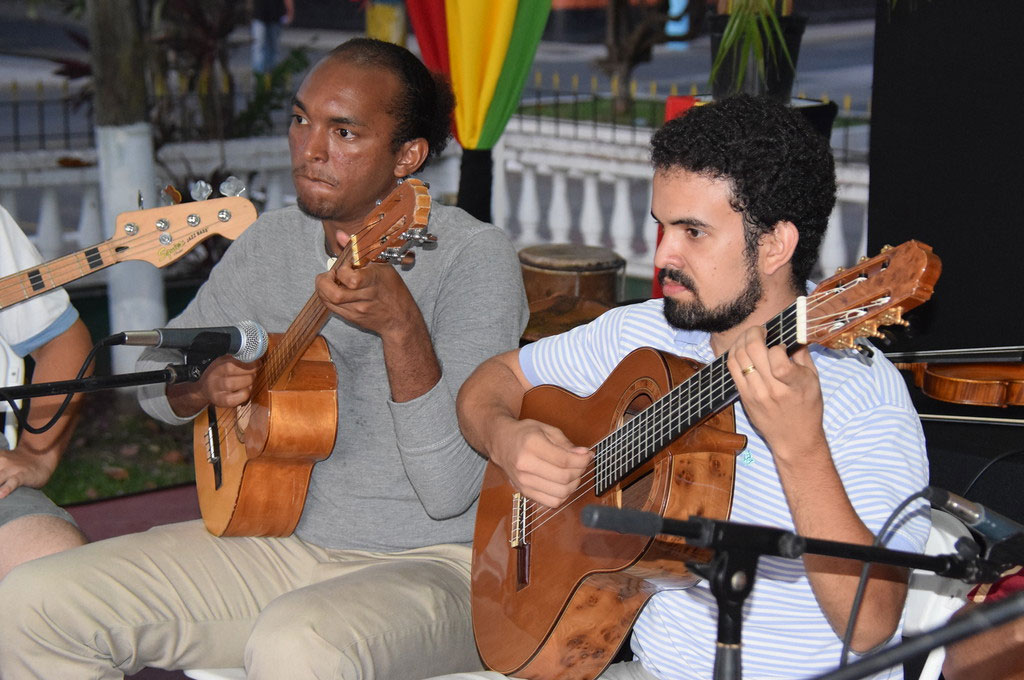
Recognizing the pioneering and persistent advocacy of the Rastafari community of St. Lucia and the wider Caribbean for Reparations and Repatriation, as well as their distinctive role as the vanguard of the movement;
Determined as youth to engage with this important process for social justice and restoration of the pride and dignity of our ancestors and, in so doing, participating in a programme for the elimination of the last vestiges and residues of colonialism and enslavement of our people, through actions and activities underscored by our theme: No Development Without Justice: Reparations for All;
Determined also that our people should not now, or at any time in the future, be caused to experience atrocities such as those which our ancestors have previously suffered through slavery and native genocide;
Noting with concern that many of our young people continue to suffer from the legacies of slavery and native genocide through varying degrees of hopelessness, negative self-worth and lost identity, among which are low educational achievement, low self-esteem, high levels of unemployment and a growing population of youth at risk, resulting in increasing levels of anti-social behaviour, including crime and violence, with our youth as both victims and perpetrators;
Yet, fully determined that the youth of St. Lucia and the wider Caribbean be empowered and engaged to take the baton of resilience, dignity and hope passed on to us through the experience of our ancestors, calling all to stand on the shoulders of their struggles and triumphs, and ensure that the space we now occupy and call home continues to be one of peace, stability and economic prosperity;
We declare that our young people are among the most flagrant victims of the legacies of slavery and native genocide, being among the most vulnerable in our societies;
We recognize that as victims we are impacted by attitudes and systems of exclusion and marginalization based often on the perceived superiority of European education and systems that often serve to deny some of the very structures established by our people within our region, as has been the experience in the efforts to promote Kwéyol within education and social systems;
We recognize and affirm our fullest commitment to all actions and activities aimed at increasing the awareness of our youth of the ways in which the historic excesses of slavery A Saint Lucian and a Venezuelan from the Saint Lucia School of Music stringed and strummed through local Kwéyol music with equal ease, demonstrating that music knows no language bounds and native genocide have continued to impact negatively much of the programme to advance the aspirations of the youth of St. Lucia;
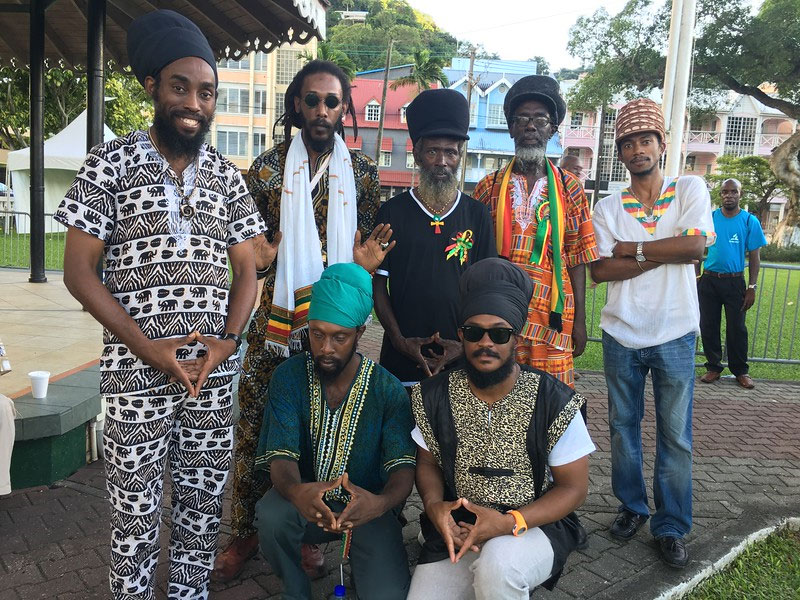
As such, we pledge, in this Declaration, our full support for and involvement in the current programme and process being undertaken within CARICOM to secure Reparations for our people, as descendants or “ascendants” of our ancestors who suffered the excesses of slavery and native genocide, in accordance with the terms and conditions established by CARICOM Heads of Government and the CARICOM Reparations Commission (CRC);
And, as such, we commit that we will:
a) Participate as equal partners in the work and advocacy of the Saint Lucia National Reparations Committee (NRC), ensuring thereby that the youth of Saint Lucia are duly and properly integrated and their ideas appropriately represented;
b) Engage young people across the country in programmes and activities that promote greater awareness of the excesses of slavery and native genocide and ways in which the legacies of these historic processes continue to impact our lives, especially in, but not confined to, issues of social justice, negative self-worth, self-hate, crime and violence among youth;
c) Assume full responsibility for engagement of the country’s youth in activities to secure Reparations for Slavery and Native Genocide, in accordance with and support

of the terms and conditions established by the CARICOM Reparations Commission (CRC), such as in the process of reform of education policies and programmes, governance and social issues, recognition of Kwéyol language and customs, as well as promotion of positive cultural and national identities;
d) Lobby national governments to ensure that adequate resources are provided for National Reparations Committees as a demonstration of national commitment to the process and without which the process will continue to be marginalized and lack influence and impact; and to
e) Create a National Programme of Youth Action on Reparations based on specific and measurable objectives to be achieved, with a mandate for regular reporting of outcomes to the National Reparations Committee (NRC).
Charde Desir
Saint Lucia CARICOM Youth Ambassador
Dean, CARICOM Youth Ambassadors




